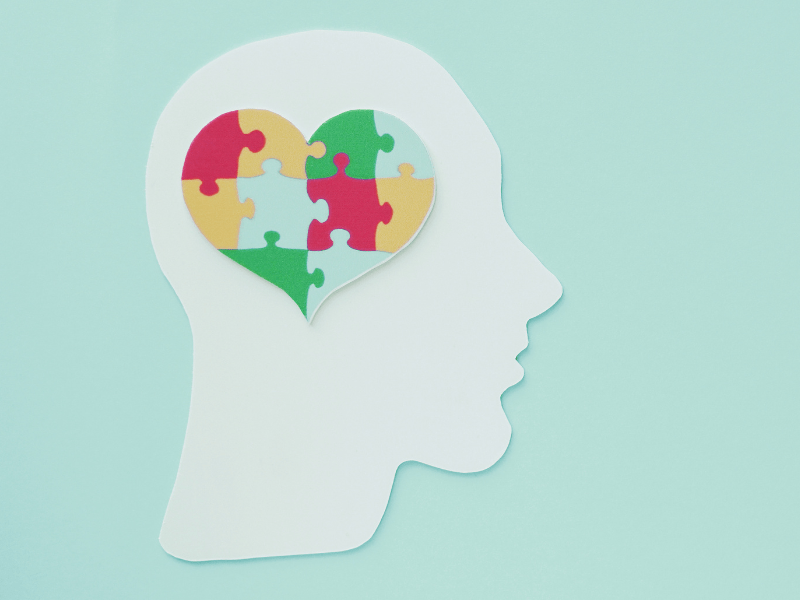Are you often left wondering how much sleep is enough for you and your loved ones? Isense has been studying how research shows that our sleep needs evolve as we age, affecting the quality of rest we get. This blog post will guide you through understanding and meeting the specific sleep requirements of all life stages—from infancy to old age.
Get ready to unlock the secrets behind a good night's rest!
Sleep Needs and Challenges for Different Life Stages
Each life stage presents unique sleep needs and challenges. From infants who require a significant amount of sleep for proper development to older adults who may struggle with age-related health issues, understanding these differences is crucial in promoting optimal rest and overall well-being.
Infants
Babies need a lot of sleep. At first, they sleep for short times throughout the day and night. Their sleep patterns change as they grow. By the time babies are 3 to 4 months old, their sleep may go through big changes.
This is known as sleep regression. Babies between 6 to 9 months stay awake more during the day and start to nap less often. Around 12 months, most babies mainly snooze at night with about 70% to 80% of them following this pattern.
Not getting enough rest can lead to problems for babies like weight issues or trouble focusing later on in life.
Toddlers and Preschoolers
Toddlers sleep a lot! Kids from 2 to 3 years old need about 12 to 13 hours of sleep in one day. Not getting enough can become a problem. This lack of rest is known as sleep deprivation and it's common among small children.
Sleep matters for many reasons. Just like our bodies, young minds also need time to recharge. Sleep provides this downtime and helps with brain growth. It also aids in learning, helping kids remember new things better.
A good night’s rest even boosts the immune system, making toddlers more able to fight off germs and sickness.
It's crucial for parents to set up proper bedtime habits early on so that their little ones get the right amount of sleep they need for healthy development. This includes having a relaxing pre-sleep routine such as reading bedtime stories or singing lullabies which will signal to them that it's time for bed soon.
Choosing the right mattress plays an essential role too! Support (which can be aided by box spring), comfort and size are factors you should note when buying one because quality sleep is key during these prime years of your child’s life.
School-Aged Children
School-aged children need a good amount of sleep. These kids, from six to twelve years old, should get between nine and eleven hours each day. They grow fast and their brains develop too.
For this, they need lots of rest! A lack of sleep can make it hard for them to do well in school. But some things make it tough for them to sleep well. Screen time is one such thing.
It's key that kids have a set bedtime and follow a sleep routine every night so they don't face any sleep problems or disturbances later on. A comfy bed also helps, too. After all, no one wants to lay awake on a lumpy mattress!
Teenagers
Teenagers, or adolescents, often struggle to get enough sleep. On average, they only get about 7 to 7 ¼ hours of sleep each night. This is not enough for their growing bodies and minds.
Sleep is incredibly important for teenagers because it affects their physical health, emotional well-being, and cognitive functioning. When teens don't get enough sleep, it can impact their performance in school and sports.
Puberty also brings its own challenges when it comes to sleep as hormonal changes can disrupt their sleeping patterns. It's crucial for teenagers to prioritize getting adequate sleep so they can thrive during this developmental stage of life.
Adulthood
As you enter adulthood, your sleep needs and challenges continue to evolve. While the recommended amount of sleep for adults is generally between 7 and 9 hours, individual needs may vary.
Stress from work, family responsibilities, and other life factors can impact your ability to get a good night's rest. Additionally, changes in hormone levels and natural aging processes can affect the quality of your sleep.
It's important to prioritize healthy sleep habits like maintaining a consistent bedtime routine, creating a comfortable bedroom environment, and managing stress levels. If you're experiencing persistent difficulties with sleep or suspect you may have a sleep disorder, it's essential to consult with a doctor or sleep specialist who can provide guidance and support to help improve your overall health and well-being.
Early and Late Midlife
During early and late midlife, sleep needs and challenges can significantly impact our well-being. Short and poor quality sleep during this period can lead to cognitive declines later in life.
In fact, self-reported sleep duration in late midlife has been linked with memory performance. Additionally, sleep-related traits during midlife are associated with an increased risk of developing sleep problems as we age.
Menopause is another factor that can affect the quality of sleep during this stage of life. Women may experience symptoms such as hot flashes and insomnia, which can disrupt their ability to get a restful night's sleep.
It's important to address these issues and seek solutions for better sleep quality.
Sleeping less than six hours a night in middle age also increases the risk of dementia later on. This highlights the significance of prioritizing adequate and high-quality rest during early and late midlife.
Retirement Age
As we enter the retirement age, our sleep needs and patterns may change. Retirement can bring about significant lifestyle changes that affect our sleep quality. Aging itself can also impact our sleep patterns and efficiency.
It's not uncommon for older adults to experience difficulties falling asleep and spending less time in the deeper stages of sleep. In fact, approximately 5% of older adults meet the criteria for clinically significant insomnia disorders.
This means that many elderly individuals may struggle with getting enough restful sleep. Common age-related sleep problems are also prevalent among retired individuals. Considering these factors, it becomes crucial to prioritize good sleep habits and create a comfortable bedroom environment to enhance sleep quality during this life stage.
Older Adults
As we age, our sleep patterns change. Older adults spend more time in the earlier, lighter stages of sleep compared to younger adults. However, the quality and quantity of sleep tend to deteriorate with age.
Many older adults get less sleep than they need, which can lead to daytime sleepiness and other issues. Poor sleep habits like irregular sleep-wake times and excessive daytime napping may contribute to insomnia in the elderly.
It's important for older adults to address these age-related sleep problems and prioritize their overall health and wellness by establishing healthy sleep habits, creating a comfortable bedroom environment, consulting with a doctor or sleep specialist if needed, and making adequate rest a priority in their daily lives.
Factors Affecting Sleep Needs
Screens and technology use, caffeine consumption, work and social schedules, menopause and hormonal changes, retirement and lack of routine, as well as age-related health issues all play a significant role in affecting sleep needs throughout different life stages.
Screens and Technology Use
Excessive screen time, especially in the evening and right before bed, can have a negative impact on our sleep. It's important to be aware of how screens and technology use can affect our sleep quality.
Using devices with screens before bed can delay the release of melatonin, which is a hormone that helps us fall asleep. This can make it harder for teenagers to get a good night's rest and may even lead to insomnia symptoms.
Additionally, spending too much time on screens before bed can disrupt our sleep patterns and make it take longer for us to fall asleep. So, it's a good idea to limit screen time in the evenings and create a relaxing bedtime routine that doesn't involve electronic devices.
It's not just teenagers who are affected by excessive screen use before bed—children and adults can also experience disrupted sleep due to screens. Electronic media use, including screen time, has been associated with shorter sleep duration in both kids and adolescents.
So for people of all ages, reducing evening screen time and creating a calm environment without electronics in the bedroom can help improve our sleep quality. It's worth noting that establishing healthy habits around screens is important for overall health and wellness at any age.
Caffeine Consumption
Consuming caffeine can have a big impact on our sleep. When we drink coffee or other drinks with caffeine, it can make it harder for us to fall asleep and stay asleep. Additionally, even if we do manage to fall asleep, the quality of our sleep may not be as good when we've had caffeine.
Drinking 400mg of caffeine (which is about four cups of coffee) up to six hours before bedtime can disrupt our sleep significantly. It decreases how efficient our sleep is, shortens the duration of both slow-wave sleep and REM sleep (which are important stages), and makes it more difficult for us to fall asleep in the first place.
Regularly drinking smaller amounts of caffeine around bedtime can also affect how well we're able to get restful sleep throughout the night. So, if you want better quality rest, try cutting back on your caffeine intake especially in the evening.
Work and Social Schedules
Work and social schedules can have a big impact on our sleep. When we work irregular hours or have demanding jobs, it can be harder to get the recommended amount of sleep. This can lead to sleep deprivation, which affects our productivity and overall health. Shift workers are particularly vulnerable to sleep problems due to disruptions in their circadian rhythm, the body's internal clock that helps regulate sleep-wake cycles. Lack of quality sleep can also increase the risk of workplace accidents and injuries.
Creating a consistent bedtime routine, making your bedroom conducive to sleep, and practicing good sleep hygiene can help improve your sleep even with busy work and social schedules.
Menopause and Hormonal Changes
During menopause, a woman's body goes through hormonal changes that can affect her sleep. These changes in hormones, specifically estrogen levels, can lead to various sleep disturbances and symptoms such as hot flashes, night sweats, and insomnia. Sleep complaints tend to increase during midlife, indicating a connection between sleep disruption and menopause. Fluctuations in reproductive hormones are linked to different forms of sleep problems like insomnia and disrupted breathing during sleep.
Women experiencing perimenopause may also experience irregular menstrual periods alongside their sleep difficulties. It is important for women going through menopause to address these issues and prioritize quality sleep for overall well-being.
Retirement and Lack of Routine
Retirement can bring about a lack of routine, which can have an impact on sleep needs. When people retire, they often no longer have the same structured schedule that they had during their working years.
This change in routine can disrupt sleep patterns and lead to sleep problems for older adults. Lifestyle changes that come with retirement, such as having more free time or experiencing increased stress levels, can also affect sleep quality.
It is common for retired individuals to experience normative changes in their sleep patterns, like feeling tired earlier in the evening. Poor sleep habits, like irregular sleeping and waking times or daytime napping, can contribute to insomnia in retirees.
Age-Related Health Issues
As we age, our bodies go through various changes that can impact our sleep. Age-related health issues can affect the quality and quantity of sleep we get. For older adults, poor sleep quality may be linked to lifestyle changes that come with aging, such as retirement.
Additionally, aging is associated with an increased prevalence of multimorbidity (having multiple chronic conditions) and polypharmacy (taking multiple medications), both of which can contribute to sleep disturbances.
Older adults may also experience normal age-related changes in sleep architecture and patterns. It's important for mattress buyers to understand these age-related health issues so they can choose a mattress that provides proper support and comfort for their changing needs as they grow older.
The Importance of Sleep Stages
Understanding the different stages of sleep is vital for overall health and well-being throughout all life stages.
NREM Sleep Patterns
NREM sleep, which stands for non-rapid eye movement sleep, is an important part of our sleep cycle. It is divided into three stages: N1, N2, and N3. In these stages, our brain waves slow down and become more synchronized. The deeper we go into NREM sleep, the harder it is to wake us up.
During stage N1, we are in a light sleep and can easily be awakened by external stimuli. This stage typically lasts for just a few minutes before transitioning to stage N2. In stage N2, our brain waves continue to slow down even more, and our body temperature decreases.
This is the longest stage of the entire sleep cycle.
The deepest stage of NREM sleep is called stage N3 or slow-wave sleep (SWS). During this stage, our brain waves reach their lowest frequency and highest amplitude. It can be challenging to wake someone up from this deep sleep because their muscles are very relaxed.
REM Sleep Patterns
During REM sleep, which stands for rapid eye movement, our muscles are relaxed, our eyes move quickly beneath our eyelids, and we may breathe irregularly. Our heart rate increases and our brain activity is heightened.
This stage of sleep is important for various functions in the body and brain. It helps with memory consolidation, emotional regulation, and learning. As we go through the night, the duration of REM sleep changes, and it decreases as we get older.
Lack of REM sleep can lead to difficulties concentrating, irritability, and mood disturbances. Understanding the importance of REM sleep patterns can help us meet our individual sleep needs at different stages of life.
The Sleep Cycle
The sleep cycle is made up of different stages that are important for our overall health. One complete cycle lasts about 80 to 100 minutes, and we typically go through four to six cycles each night.
There are two main types of sleep: rapid eye movement (REM) sleep and non-REM sleep. Non-REM sleep has three stages, with the first stage being the lightest and the fourth stage being the deepest.
It's during these deep stages that our body gets restored and rejuvenated. Each life stage has its own unique sleep needs and patterns, from infancy to adulthood. Understanding the different stages of sleep can help us prioritize quality rest for better overall well-being.
How Sleep Stages Affect Overall Health
Sleep stages play a crucial role in our overall health. During these stages, our brain waves change and help us recover both physically and mentally. The sleep cycle consists of different stages, including non-rapid eye movement (NREM) and rapid eye movement (REM) sleep.
During NREM sleep, the body repairs itself, restores energy levels, and strengthens the immune system. This stage is important for processes like muscle growth and tissue repair. On the other hand, REM sleep is vital for brain function and emotional well-being.
It supports learning, memory consolidation, and mood regulation. By going through all the sleep stages multiple times throughout the night, we allow our bodies to recharge fully. Adequate amounts of quality sleep can improve concentration, enhance cognitive function, boost immune system functioning, regulate hormones that control hunger and fullness signaling in adults as well as prevent obesity among children.
Improving Sleep at Every Age
Improve sleep at every age by establishing healthy sleep habits, creating a comfortable bedroom environment, addressing age-specific sleep challenges, consulting with a doctor or sleep specialist, and making sleep a priority in overall health and wellness.
Establishing Healthy Sleep Habits
Improving sleep quality and developing healthy habits can lead to better sleep at every age. Here are some tips for establishing healthy sleep habits:
- Stick to a consistent sleep routine. Try to go to bed and wake up at the same time every day, even on weekends.
- Create a relaxing bedtime routine. This could include activities like reading a book or taking a warm bath before bed.
- Make your bedroom a sleep-friendly environment. Keep it cool, dark, and quiet, and use comfortable bedding and pillows.
- Limit screen time before bed. The blue light emitted by electronic devices can disrupt your sleep patterns.
- Avoid caffeine and heavy meals close to bedtime, as they can interfere with falling asleep.
- Get regular exercise during the day, but avoid intense workouts too close to bedtime.
- Manage stress through relaxation techniques like deep breathing or meditation.
- Ensure your mattress provides proper support and comfort for your body.
Creating a Comfortable Bedroom Environment
A comfortable bedroom environment is important for getting a good night's sleep. Here are some tips to create an optimal sleep space:
- Keep your bedroom cool, quiet, and dark.
- Choose a mattress and pillows that provide proper support and comfort.
- Use breathable bedding materials to regulate temperature.
- Minimize disruptive noise by using earplugs or a white noise machine.
- Remove electronic devices, such as TVs and smartphones, from the bedroom.
- Consider using blackout curtains or an eye mask to block out light.
- Keep the room clean and free of clutter for a more relaxing atmosphere.
- Use calming scents, such as lavender, to promote relaxation.
- Make sure your sleeping environment is safe and secure.
Addressing Age-Specific Sleep Challenges
As we go through different stages of life, our sleep needs and challenges change. It's important to understand these age-specific sleep challenges in order to address them effectively. Here are some tips for addressing age-specific sleep challenges:
- Infants:
- Create a soothing bedtime routine.
- Provide a comfortable sleep environment with a crib that meets safety standards.
- Learn your baby's sleep cues and establish a consistent nap schedule.
- Toddlers and Preschoolers:
- Maintain a regular sleep schedule.
- Set clear boundaries and establish bedtime routines.
- Create a calm and relaxing bedroom environment.
- School-Aged Children:
- Limit screen time before bed.
- Encourage physical exercise during the day.
- Establish consistent bedtimes and wake-up times.
- Teenagers:
- Encourage good sleep hygiene, such as avoiding caffeine and screens before bed.
- Support their need for more sleep by allowing later wake-up times on weekends.
- Help them manage stress and establish healthy coping mechanisms.
- Adulthood:
- Prioritize sleep as an essential part of overall health and well-being.
- Practice relaxation techniques to promote better sleep quality.
- Create a comfortable bedroom environment that promotes relaxation.
- Early and Late Midlife:
- Manage work-life balance to ensure enough time for restful sleep.
- Address any underlying health conditions that may affect sleep quality.
- Consider seeking professional help if experiencing chronic sleep issues.
- Retirement Age:
- Establish a regular daily routine to maintain consistent sleeping patterns.
- Engage in regular physical activity during the day but avoid stimulating activities close to bedtime.
- Seek treatment for any age-related health issues affecting sleep.
- Older Adults:
- Maintain a regular sleep schedule.
- Create a calm and comfortable bedroom environment.
- Avoid stimulating activities or substances close to bedtime.
Consulting with a Doctor or Sleep Specialist
If you're having trouble with your sleep, it might be helpful to talk to a doctor or a sleep specialist. They can provide guidance and advice on how to improve your sleep quality. Whether you need help setting up a better sleep environment or managing insomnia, these experts can offer effective treatment strategies tailored to your specific needs. When it comes to reliable information about sleep, the Sleep Foundation is a trusted resource. You can also benefit from advancements in sleep medicine, which have improved our understanding of circadian rhythms and how they impact our sleep.
So don't hesitate to reach out for professional assistance when it comes to getting the quality rest you deserve.
Making Sleep a Priority in Overall Health and Wellness.
Making sleep a priority is crucial for maintaining overall health and wellness at every age. Sleep quality and consistency play a significant role in our well-being. Getting enough sleep can help prevent illnesses, reduce stress, and improve brain function. Most healthy adults need at least seven hours of sleep each night to function optimally. By prioritizing sleep, we allow our bodies to recharge and repair themselves, giving us the energy and mental clarity needed to tackle the day ahead.
Whether you're a parent juggling family life or an older adult enjoying retirement, establishing good sleep habits and creating a comfortable bedroom environment can greatly enhance your quality of life.
Conclusion
In conclusion, understanding and meeting the sleep needs of different life stages is crucial for overall well-being. From infancy to older adulthood, our sleep requirements change.
By establishing healthy sleep habits, creating a comfortable environment, addressing age-specific challenges, and making sleep a priority in our health and wellness routines, we can promote better sleep at every age.
It's important to consult with doctors or sleep specialists for personalized guidance. Remember that quality rest plays a vital role in maintaining good physical and mental health throughout life.
FAQs
1. How many hours of sleep do adults need?
Most adults need between 7 to 9 hours of sleep per night for optimal health and functioning.
2. Do teenagers require more sleep than adults?
Yes, teenagers typically require about 8 to 10 hours of sleep per night due to their growing bodies and increased mental and physical demands.
3. How many hours of sleep do school-aged children need?
School-aged children (6-12 years old) should aim for around 9-12 hours of quality sleep each night to support their development, learning, and overall well-being.
4. Do older adults need less sleep than younger adults?
Yes, as we age, our sleep patterns change, and older adults (65 years or older) may find that they require about 7-8 hours of sleep per night.
5. What can I do if I'm having trouble sleeping at any age?
If you're having trouble sleeping at any age, establishing a consistent bedtime routine, creating a relaxing environment in your bedroom, avoiding caffeine and screens before bed, and practicing relaxation techniques can help improve your chances of getting better quality restful sleep.



















